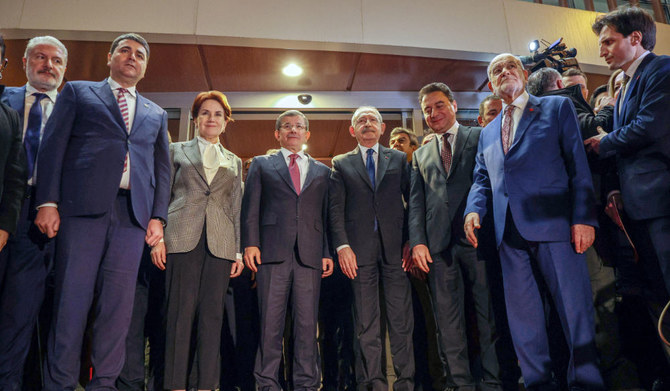NEW YORK: A new report from the UN Syria Commission of Inquiry paints a chilling picture of widespread abuses by the former Syrian government during the first decade of civil war in the country.
The commission’s findings, released on Monday, highlight the systematic use of arbitrary detention, torture, and enforced disappearances aimed at crushing dissent.
These acts, described as crimes against humanity and war crimes, represent some of the most severe violations of international law during the Syrian conflict.
The overthrow of the former government and the release of prisoners from its torture chambers mark a dramatic change for Syrians, “something almost unthinkable just two months ago,” said the commission.
“We stand at a critical juncture. The transitional government and future Syrian authorities can now ensure these crimes are never repeated,” said Paulo Sergio Pinheiro, chair of the commission, adding that the scale of the brutality is “staggering.”
“We hope our findings from almost 14 years of investigations will help end impunity for these patterns of abuse.”
Titled “Web of Agony: Arbitrary Detention, Torture, and Ill-Treatment in the Syrian Arab Republic,” the report draws on over 2,000 witness testimonies, including more than 550 interviews with survivors of torture.
The commission’s investigation, which spans nearly 14 years, offers an unprecedented, comprehensive insight into the horrific violations inside Syria’s detention facilities and the profound “legacy of trauma and suffering for the suffering people.”
The report details a wide array of torture methods employed by the Syrian authorities, including severe beatings, electric shocks, mutilation, sexual violence, and psychological torment.
Detainees were subjected to prolonged periods of isolation, denied medical care, and often left to die from malnutrition, disease, or injuries. In some cases, survivors reported that bodies were left in cells for days, further compounding the suffering.
The report describes in chilling detail the pattern of “torture and cruel, degrading, inhumane treatment that former State forces inflicted on detained men, women, boys, and girls.”
These include severe beatings, electric shocks, burning, pulling out nails, damaging teeth, rape, sexual violence including mutilation, prolonged stress positions, deliberate neglect and denial of medical care, exacerbating wounds, and psychological torture.
Survivors and witnesses told the commission how prisoners, enduring torture injuries, malnutrition, disease, and illness, were left to die slowly in excruciating pain or were taken away to be executed.
Food rations were scarce or tainted, there was a shortage of clean drinking water and adequate clothing, and prisoners had so little space they were unable to lie down to sleep and were forced to rest on cold floors with only a blanket as a mattress. Survivors also reported that corpses were left in communal cells for days.
When the commission began its first on-site investigations, it found small, windowless isolation cells in the basement still saturated with a terrible stench and bearing the marks of unimaginable suffering. The conditions at these locations matched the accounts provided by hundreds of survivors and defectors over the past 14 years.
While the former government of Syria was overthrown in December 2024, agony persists for tens of thousands of families who continue to search for missing loved ones, many of whom were detained under the previous regime’s brutal policies.
The discovery of additional mass graves has deepened fears that many of the missing have perished in the torture chambers or been executed by the authorities.
Following recent visits to mass graves and former detention centers in the Damascus area, the commission confirmed that substantial evidence of the crimes remains.
Sites such as the notorious Sednaya prison, Military Intelligence Branch 235, and Air Force Intelligence branches in Mezzeh and Harasta still bear traces of the regime’s crimes.
Although much of the documentation had been destroyed, significant remnants of evidence have survived, raising hopes of uncovering the truth about the fate of missing persons.
The report underscores the urgent need for safeguarding evidence, archives, and crime sites, including mass graves, until experts can examine them and conduct forensic exhumations.
“For Syrians who did not find their loved ones among the freed, this evidence, alongside testimonies of freed detainees, may be their best hope to uncover the truth about missing relatives,” said commissioner Lynn Welchman.
The commission has urged the new caretaker government to prioritize the protection of these mass graves and crime scenes, as well as the collection of further evidence through forensic exhumations.
While the overthrow of the regime represents a turning point, the commission stresses that the road to justice and accountability is far from over. With the former government’s fall, Syria is now at a critical juncture. The transitional authorities and future leaders have an opportunity to ensure these crimes are not repeated, the commission said.
“The transition period offers a window of opportunity to break the cycle of impunity,” noted commissioner Hanny Megally.
“We hope to see credible justice initiatives in Syria, where survivors and their families can play an active role. The international community must be ready to assist in this effort.”
The report also calls for continued international support for Syrian civil society and human rights organizations, urging nations to pursue universal jurisdiction to bring perpetrators to justice.
The commission continues to work with the UN and partner organizations, including the International, Impartial and Independent Mechanism and the Independent Institution on Missing Persons in the Syrian Arab Republic to support accountability and justice efforts.
It was established by the UN Human Rights Council in 2011, and since then has investigated violations of international law during the Syrian conflict, which has caused hundreds of thousands of deaths and displaced millions of people.
The commission’s mandate has been extended multiple times, most recently until March 2025.
With this report, the UN commission seeks not only to document the scale of the atrocities committed by the former regime but also to contribute to a broader effort to ensure that such violations never happen again.































